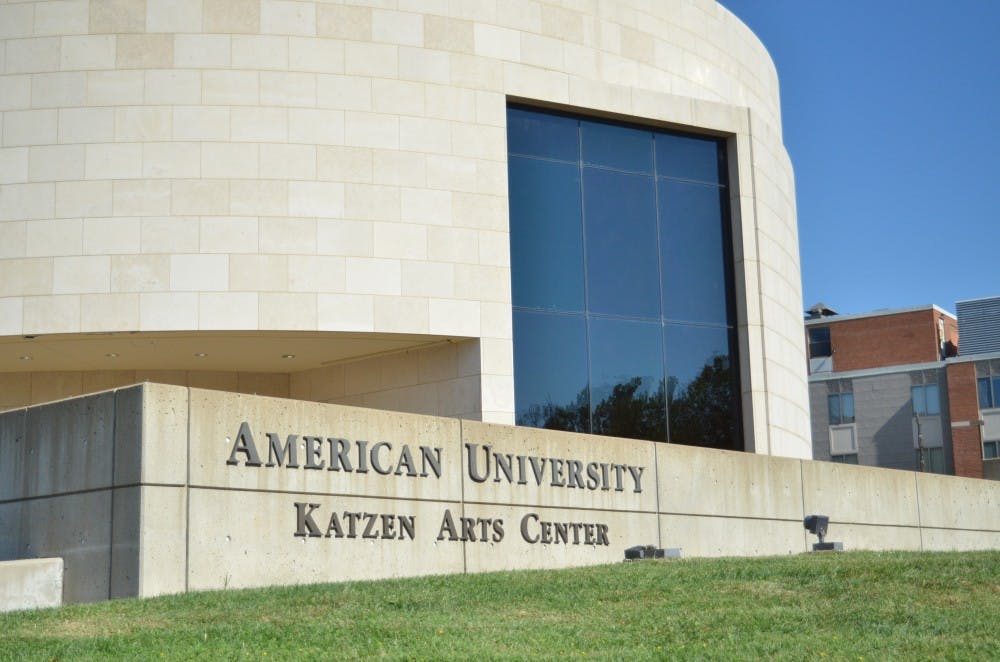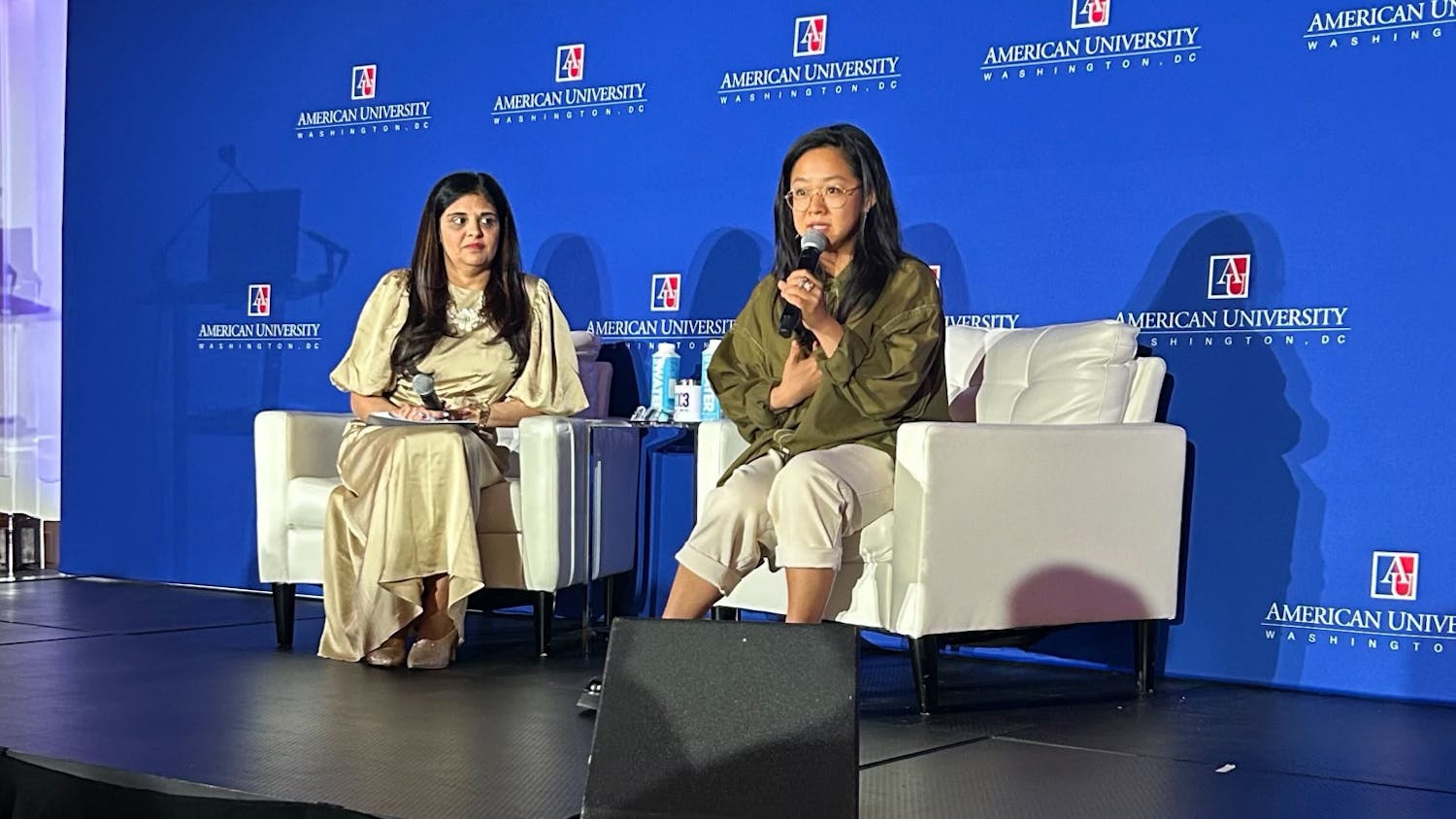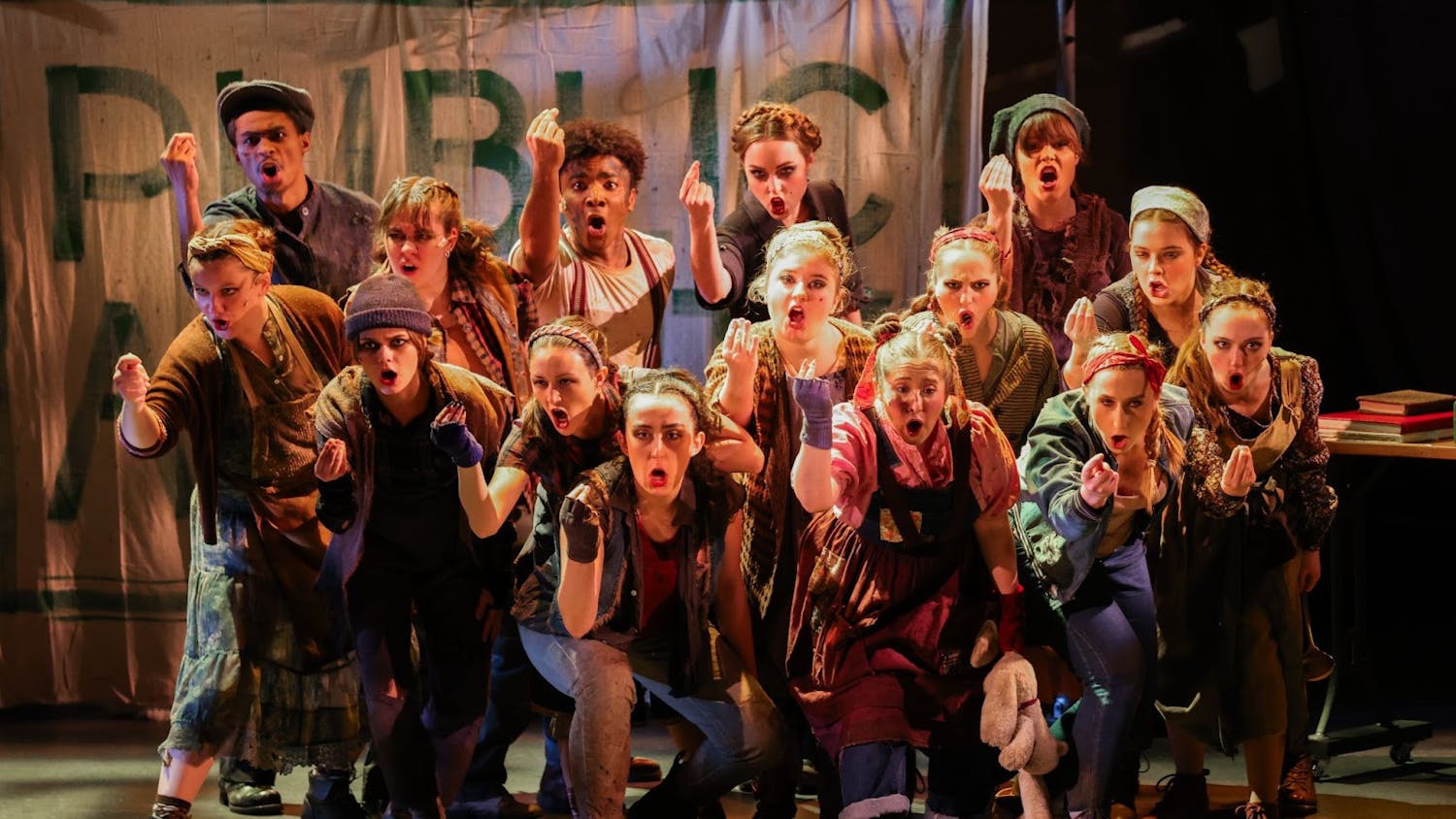Editor’s note: This article originally appeared on theeaglecoronavirusproject.com, a separate website created by Eagle staff at the onset of the coronavirus pandemic in spring 2020. Articles from that website have been migrated to The Eagle’s main site and backdated with the dates they were originally published in order to allow readers to access them more easily.
In the wake of the coronavirus, every department at American University has had to adapt. However, singing has become a distinct challenge due to COVID-19 that the University’s Department of Performing Arts and student-run a cappella groups have had to grapple with.
Dan Abraham, chair of the Department of Performing Arts and director of AU Chamber Singers, said that he and his colleagues worked constantly in the weeks following the University’s decision to switch entirely to remote instruction.
Originally, Abraham said that his department was looking into four pillars of safety: masking, hygiene, distancing and air exchange. During the warmer months, Abraham expected to hold some of Chamber Singers’ rehearsals outdoors. Now, in an online semester, there is very little opportunity for students in the DPA to convene in-person.
Students are able to request swipe access to Katzen if they need a practice room, but capacity will remain limited.
“In order to promote the highest quality online teaching in the performing arts, we’ve set up four spaces within the Katzen Center and Greenberg Theatre to have telecast possibilities,” Abraham said.
Data from the Centers for Disease Control and Prevention show that, in March, about 53 people in a 122-member choir were assumed to have gotten COVID-19 after attending a choir rehearsal. Singing may play a role in transmitting the virus via aerosols, in addition to droplets.
Music ensembles are holding online synchronous classes and creating asynchronous projects, according to Abraham.
“We’re looking at doing some recording that’ll be both in-house as well as people from outside simultaneously recording together, so that’s pretty complicated,” said Abraham, in regards to Chamber Singers.
Ensembles are relying heavily on online software for classes and rehearsals. William Brent, associate professor of audio technology, has been working with the software making this possible. The software, called JackTrip, allows students to “send full-quality, multi-channel audio over internet connections with extremely low latency,” Brent said.
“You can’t just sing together in a 20-person choir and be musically accurate in a Zoom call because there’s so much delay going on,” Brent said.
Brent teaches a graduate course called Telematic Music Production. This semester, his students will be focusing on mastering about 20 virtual programs. The goal of the course is for the students to use the techniques they learn to produce a virtual concert.
“We don’t have to be in the same spaces, and we can still put on a concert together,” Brent said.
Although Brent said that he is excited about the new ways the department is adapting to remote learning, he is concerned about unequal access to the technology and internet connection needed for the software to function properly.
“We can do everything within our power to try to equalize it where we can, but some students need better computers, some students need a better internet connection because this stuff does take a lot of bandwidth,” Brent said. “You need maximal bandwidth to be able to do this effectively, and not everyone has a $150 a month internet connection.”
In previous semesters, the Kay Spiritual Life Center was often turned into a concert hall for AU’s a cappella groups on a weekend night. Now, student-led a cappella groups have had to take their rehearsals, performances and auditions in a new direction.
Tez Byrnes, a senior at AU and president of the co-ed a cappella group Dime a Dozen, said that with the switch to remote learning and activities, Dime a Dozen will no longer hold auditions in the fall. She said that it would be difficult to introduce new people to the group in a virtual setting.
Byrnes said that Dime a Dozen is going to attempt to hold synchronous rehearsals every few weeks.
During a typical semester, the ensemble would hold rehearsals two nights a week. However, Byrnes said that many members of the group have taken on new jobs and responsibilities due to the pandemic. Additionally, she said it is hard to emulate the traditional feel of a cappella in a virtual setting since singers cannot be physically close to one another.
Dime a Dozen is still planning on holding virtual concerts throughout the semester. Over the summer, the group put together a Zoom rendition of their group song, called “Change,” and posted it to Instagram. Byrnes expects the group to do more of this throughout the semester. She said that she has been in contact with the other presidents of AU a cappella groups, and that they are also hoping to do these kinds of virtual events.
“I think everybody’s at a pretty general consensus that the best we can do is just kind of keep up an online presence for the time being,” Byrnes said.
Although this semester will be different for singers, performers at AU have not been silenced by COVID-19. There are hopes that new techniques will be positive tools for students in the future.
“Even if we don’t have to keep six feet apart, these techniques will still be useful, and they’ll make more music creation possible beyond the pandemic,” Brent said.





